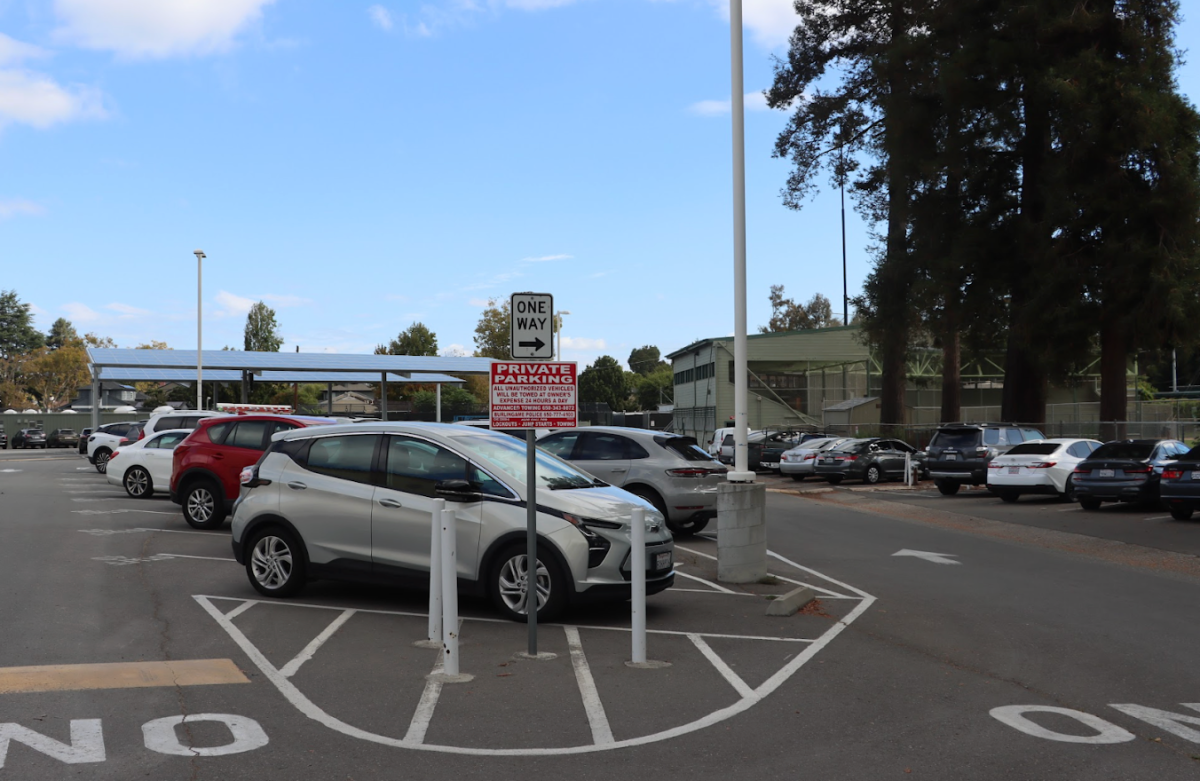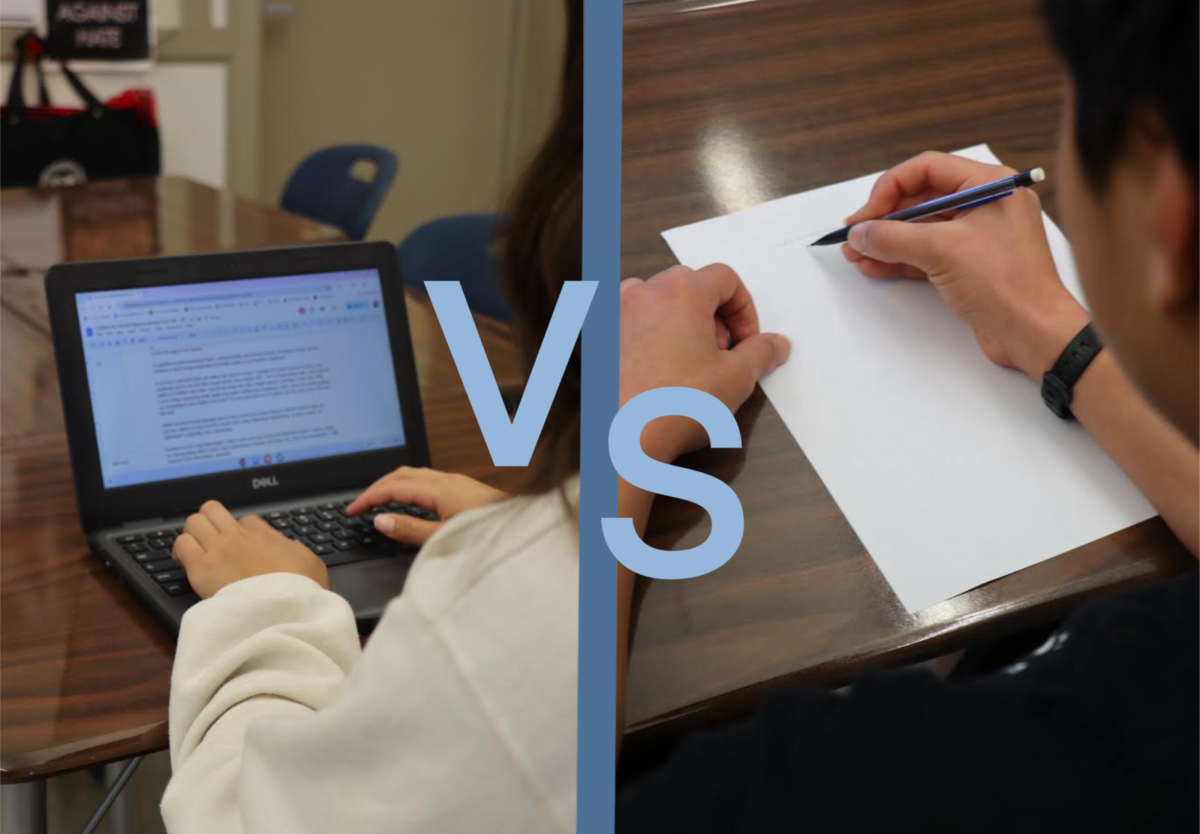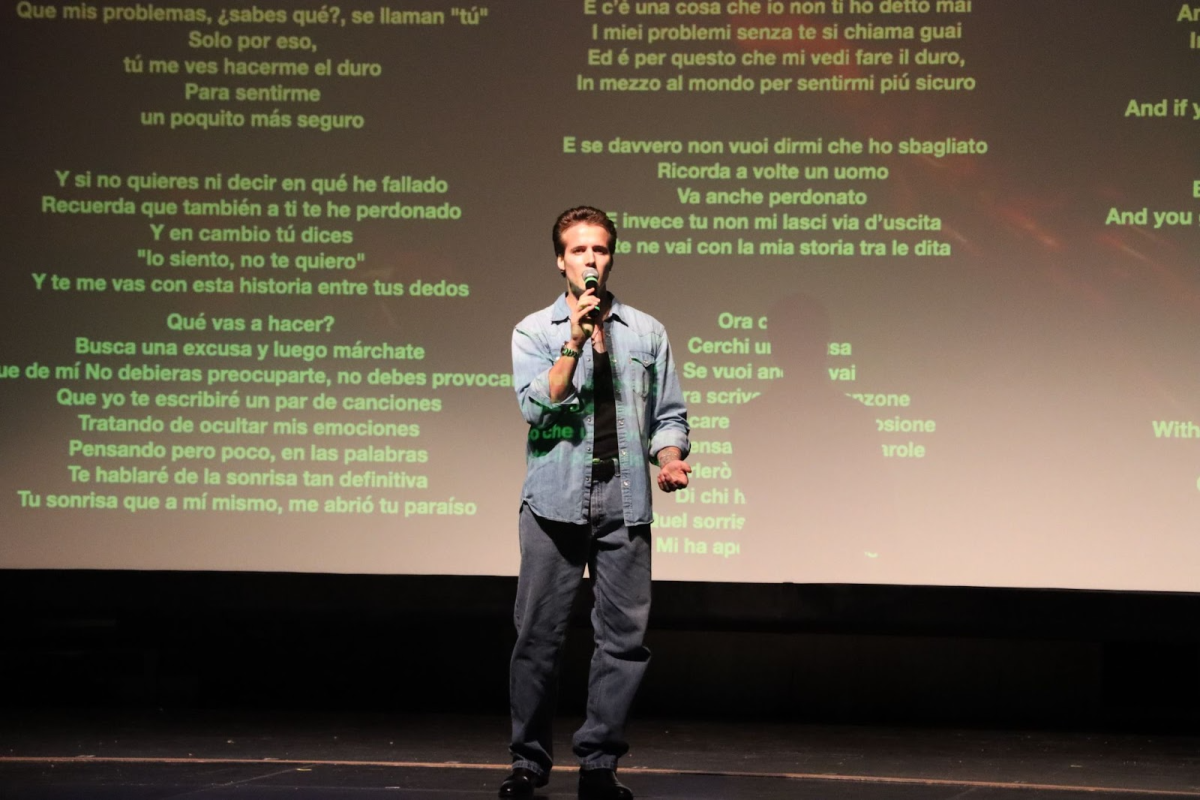From Canvas to Chromebooks, technology has become a fixture inside the classroom. The impact of the pandemic, which forced educators to rely almost solely on digital tools for instruction, still lingers. However, now that students have returned to in-person learning, some may wonder whether sole reliance on computers is still necessary for effective learning.
Although world history teacher Jim Chin allows his students to choose between taking notes on paper or online, he acknowledges that many may struggle to stay focused when using computers.
“I noticed I learned more when I was taking notes by hand [in college] … I wouldn’t be distracted by having access to the internet,” Chin said. “I think a lot of students will probably have some similar temptations.”
Yet, sophomore Izzy Erickson chooses to take handwritten notes in Chin’s class for a different reason: she finds that writing by hand helps her remember the material more effectively.
“Even if I don’t review [my notes] … writing it instead of typing it helps me retain the information,” Erickson said.
Others believe technology boosts productivity. While sophomore Rishabh Purwar recognizes the possible drawbacks, he feels computers can be beneficial if used productively.
“I can say [that] almost everyone has struggled to stay on task [on a computer], but that’s the trade-off you have of getting technology to make things more easy for you,” Purwar said. “I think it’s definitely still more worth it if we can get ourselves to work better on it.”
For Chin, digital tools have streamlined parts of his work, allowing him to efficiently catch mistakes and spot trends in student performance.
“It’s [now] really easy for me to tell if a [multiple choice] question was really janky or I accidentally made two answer choices correct. Canvas will just show me that whereas back when the things were bubbled in Scantron, I would have to feed [them] through a machine and then get that data,” Chin said.
Despite the convenience technology may bring, English teacher Amy Farley said that computers are a distraction, noting the negative impact they have not only on learning but also on interactions between students.
“A lot of times when students have their devices out, even if we’re doing something collaboratively, it’s easier for them to step aside to their math homework or their online shopping for prom or whatever else is happening,” Farley said.
Freshman Will Mullen-Weaver believes that computers can be helpful for organization, but can, in excess, be unhealthy for students.
“I feel like working electronically could be more organized because you don’t need to keep track of paper. But also, kids spending time on their computers for every class might [not be] good for them… paper might be a little bit healthier,” Mullen-Weaver said.
In addition to health concerns, Farley adds that newer technologies like generative artificial intelligence can encourage academic dishonesty, prompting her and some of her colleagues in the English department to shift toward primarily paper-based classrooms.
“Overall, it’s an interesting moment we are in … I really value technology as a whole. I think the difficulty is we’ve sort of let all this power out, freely available, which is wonderful in an equity sense, but makes it very hard,” Farley said.




































